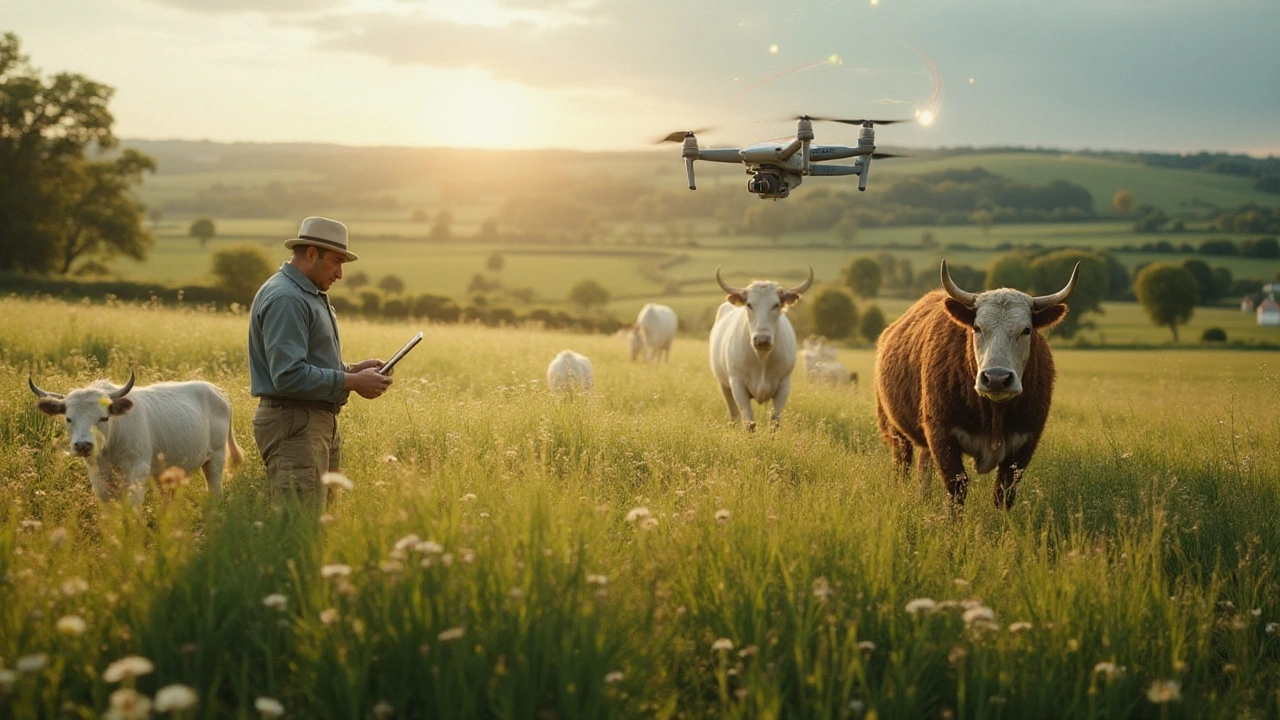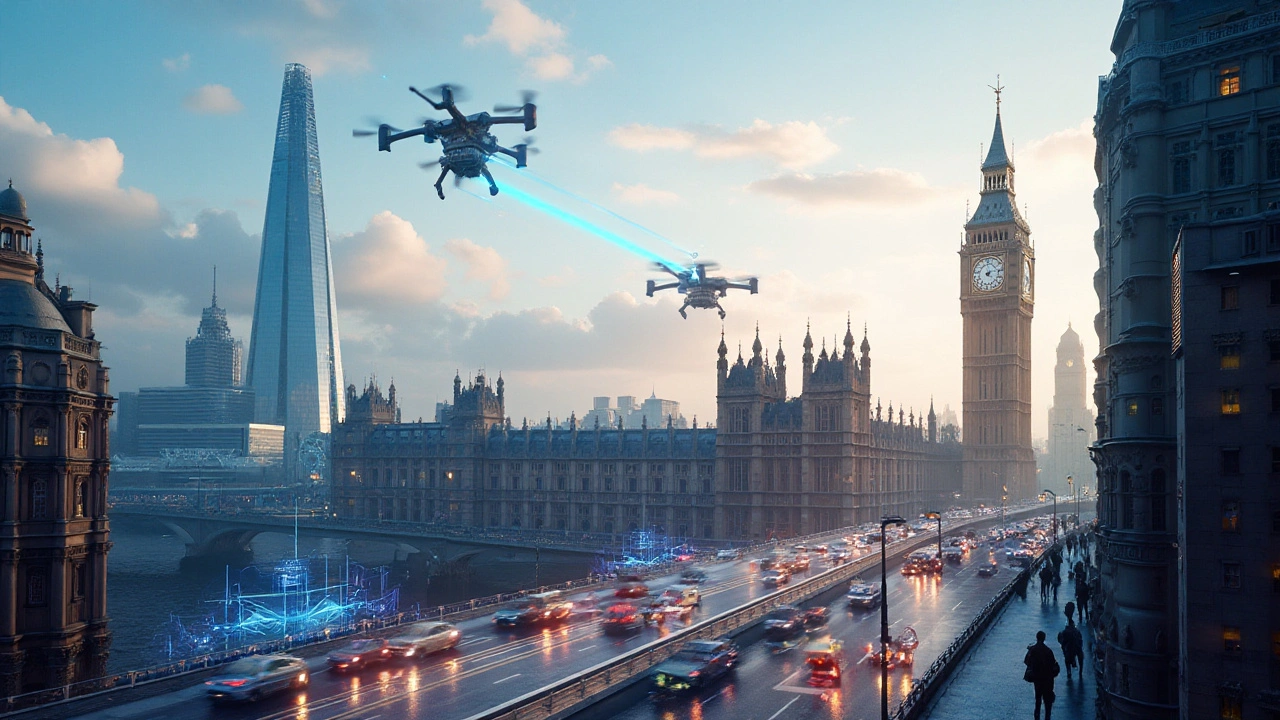Imagine a world where machines understand our needs before we do, where technology seamlessly integrates into every facet of life, enhancing our capabilities and experiences. This is not science fiction; it's the emerging reality powered by artificial intelligence (AI). AI, brimming with tricks and techniques, is swiftly redefining the landscape of innovation and technological advancement.
In this unfolding era, AI isn't just about robots taking over menial tasks. From your smart home devices learning your preferences to sophisticated algorithms predicting market trends, the AI tricks of today are as varied as they are groundbreaking. This article delves into the world of AI, examining the clever ways it transforms industries, tackles complex problems, and shapes the future. The journey is one of exploration and adaptation, inviting each of us to consider how we can harness these developments to enrich our own lives.
- Understanding AI Tricks
- Practical Applications of AI
- Challenges and Ethical Considerations
- The Future of AI Innovations
Understanding AI Tricks
The realm of AI tricks is as fascinating as it is complex, offering a glimpse into what makes artificial intelligence far more than just a buzzword. AI encompasses a myriad of techniques and algorithms that allow machines to learn from data, perceive their environment, and make decisions with astounding speed and accuracy. The evolution of AI has seen it progress from simple rule-based systems to sophisticated networks capable of deep learning and neural processing, akin to the workings of a human brain. This progression is marked by innovations such as machine learning, natural language processing (NLP), and computer vision, all working harmoniously to push boundaries.
At the heart of AI's magic is machine learning, a subfield that utilizes statistical methods to enable machines to improve their performance on tasks through experience. By analyzing large datasets, these algorithms learn patterns and make predictions without being explicitly programmed for specific tasks. It's the technology behind personalized recommendations like those Netflix offers, or the facial-recognition systems unlocking your smartphone. Natural language processing, on the other hand, empowers computers to understand and respond to human language. This underpins virtual assistants like Siri and Alexa, turning spoken requests into executable commands. Such capabilities have led to advancements in areas like sentiment analysis, where businesses can gauge consumer opinions by analyzing social media content.
Computer vision, another pillar of AI, offers machines the ability to interpret visual information. This power transforms industries by enabling advanced image recognition tools that assist everything from automated quality checks in manufacturing to innovative healthcare diagnostics. It's not just about replication; these systems learn to detect patterns and anomalies at a rate and precision that outstrip human capabilities. The intersection of these fields generates what we consider AI tricks, evolving continuously due to new findings and greater computational power.
As with any technological advancement, the development of AI and its tricks necessitate careful thought regarding ethical implications. The discussion surrounds the responsible use of data, the potential biases in decision-making, and the overarching question of AI’s role in our future. Dr. Fei-Fei Li, a computer science professor at Stanford University, eloquently stated, "AI is everywhere already, but we won't see the full extent of its influence unless we ensure it is designed with ethical considerations in mind."
To truly understand AI tricks, one must also consider the computational statistics behind them. According to a recent industry report, AI can potentially automate 45% of activities employees perform, contributing to a significant productivity boost. Such statistics highlight why businesses invest heavily in AI research and integration. However, the magic lies not just in automation but in augmentation—enhancing human capabilities rather than replacing them.

Practical Applications of AI
When we step into the realm of AI tricks, we're not just discussing the latest gadgets; we're diving into transformative innovations spanning multiple domains. In the healthcare industry, AI is a game-changer, enhancing diagnostics and treatment plans. Modern AI algorithms assist doctors in analyzing complex medical data with precision, making early diagnosis of diseases like cancer more accurate. Imagine a world where a slight anomaly in your health data triggers an automatic warning, enabling timely interventions and increasing survival rates. Notable AI applications in healthcare include IBM's Watson, which sifts through mountains of medical literature to offer targeted treatment recommendations, echoing the idea that knowledge is power.
In the business world, AI is revolutionizing customer service via chatbots that are accessible around the clock. These smart assistants learn from every interaction, tailoring responses to meet user preferences and expedite problem resolution. For instance, companies use AI to scour public internet data for consumer sentiment analysis, providing businesses with data-driven insights into customer satisfaction. This is crucial in today’s fast-paced market, where aligning business strategies with consumer needs can make or break a brand.
Moreover, AI’s role in agriculture is silently booming, paving the way for ‘smart farming.’ Techniques such as crop monitoring with drones and predictive analytics contribute to food security by optimizing yield predictions and reducing resource wastage. With drones scanning fields and sensors gathering data around the clock, farmers receive real-time alerts about potential issues. Not surprisingly, this technology is vital in combating challenges like climate change and population growth.
According to McKinsey & Company, "AI has the potential to create economic value across sectors – including $9.5 trillion to $15.4 trillion annually."
The revolution doesn't stop here; the automotive industry hasn't been left behind. Modern vehicles boast self-driving capabilities powered by AI, where systems like Tesla's Autopilot are not just novelties but harbingers of a safer, more efficient future in transportation. These vehicles utilize AI for immediate decision-making, identifying obstacles, and adjusting speeds autonomously. The result is increased safety for passengers and pedestrians alike, hinting at a future where car accidents could become a rarity.
A gripping point of impact is the field of education, where AI offers personalized learning experiences. Algorithms gauge a student's strengths and weaknesses, curating lessons that suit individual learning paces and styles. This approach fosters deeper understanding and retention, ensuring students grasp complex concepts at their own speed. In essence, AI here acts like a patient tutor, ever-ready to assist whenever a student falters.
Through these examples, it's evident that AI tricks have entered our lives, promising to solve today’s challenges while opening new horizons. The true potential of AI lies in its versatility, as innovative minds continue to find fresh applications. As we keep unraveling AI's capabilities, one thing is certain – embracing these changes could transform the ordinary into the extraordinary.

Challenges and Ethical Considerations
The surge of AI tricks has come hand in hand with a myriad of challenges and ethical dilemmas, sparking deep discussions among technologists, ethicists, and policymakers alike. A pivotal concern is the potential for bias inherent in AI systems. Because these algorithms learn from data provided by humans, they are susceptible to human prejudices, which can be inadvertently incorporated into their decision-making processes. This raises significant issues in sectors where fairness and impartiality are paramount, such as in criminal justice and hiring practices. An algorithm making biased decisions could perpetuate existing societal inequalities, leading critics to call for comprehensive guidelines and regulation.
Another pressing issue is the transparency of AI systems. The so-called 'black box' nature of many algorithms means that their inner workings are inscrutable even to their creators, which complicates the task of pinpointing errors or biases. The implication of this lack of understandability in decision-making processes could have profound implications, especially when decisions impact human lives. As AI grows more autonomous, moments of malfunction or misbehavior stir fears about accountability. Who is responsible when an AI makes a poor judgment?
The potential impact of AI on employment is yet another frequently discussed challenge. While AI is poised to take over mundane and repetitive tasks, leading to increased efficiency, one may worry about the displacement of workers who perform these tasks. Preparing the workforce for this shift through skill retraining and educational reforms becomes crucial yet daunting, requiring collaboration across both public and private sectors. According to a study by the World Economic Forum, machines are anticipated to handle more than half of all workplace tasks by 2025, urging economies worldwide to adapt swiftly.
"The real question is, when will we draft an artificial intelligence bill of rights? What will that consist of? And who will get to decide that?" - Gray Scott, Futurist and Tech Philosopher
Privacy concerns also loom large on the horizon as AI systems increasingly collect personal data to tailor services, fueling a debate between technological benefits and the right to individual privacy. Governments and organizations must tread carefully, striking a balance between innovation and security. Rigorous data protection regulations like the General Data Protection Regulation (GDPR) aim to protect individual privacy; however, adhering to such frameworks while maintaining high-functioning AI systems remains a formidable challenge for many companies.
Ethical considerations extend into AI's potential uses in surveillance and warfare. With the increasing sophistication of AI-driven technologies in monitoring systems and autonomous weapons, discussions about surveillance overreach and ethical warfare practices become urgent. The deployment of facial recognition technologies in public spaces can infringe upon privacy rights and enable unwarranted surveillance. Meanwhile, debates continue over whether AI-based systems should be deployed in conflict zones, as the moral implications are complex and heavily contested. As we navigate these turbulent waters, the onus is on stakeholders to enshrine ethical principles in all stages of AI development to safeguard human rights while steering the helm of innovation.

The Future of AI Innovations
When we talk about the future, it's nearly impossible to ignore the significant role that AI plays within emerging technologies. As the world continues to evolve, AI is not just part of the landscape—it is the path forward. The potential for AI to redefine the boundaries of what's possible is immense. With innovations in technology driving progress, we find that AI's capability to handle data, learn from it, and make informed decisions is increasingly becoming indispensable. From autonomous vehicles charting new courses on our streets to AI-driven healthcare systems providing precise diagnoses, the future is heading towards increased automation and smarter applications.
Every industry stands to benefit from AI tricks and innovations, and as they integrate these systems, they open doors to enhanced efficiency and productivity. Consider the agricultural sector, for instance, where AI-powered drones and machinery are capable of analyzing soil health, optimizing crop yields, and reducing waste. This isn't just theoretical; it's happening now, paving the way for sustainable farming practices that can help address global food shortages. The potential applications of AI in educational settings are just as transformative, where personalized learning experiences could revolutionize how we approach teaching and learning. By understanding a student's unique challenges and preferences, AI could tailor educational content to fit the individual, bridging gaps in knowledge and comprehension.
Moreover, as AI advances, it raises important questions about the ethical and societal implications of its use. While the benefits are clear, AI must be developed responsibly. The conversation around ethics and accountability is crucial as the technology becomes more ingrained in our daily lives. In a recent discussion, noted AI researcher Fei-Fei Li emphasized this by saying,
"We have to make AI technology that empowers everyone equally, not just a select few."This perspective underscores the necessity of creating balanced regulations and ethical frameworks that ensure the technology is a force for good.
The potential for innovation in the AI sector shows no sign of slowing down. With major tech companies and startups investing heavily in research and development, breakthroughs in machine learning, natural language processing, and AI ethics continue to emerge. Looking ahead, we can expect AI to not only augment human capabilities but also to pioneer new solutions to problems we've yet to encounter. The next frontier might just see AI taking a more prominent role in addressing climate change, managing global crises, and even extending the horizons of human exploration into space.
As we stand on the precipice of this new era, it is crucial to remain informed and engaged with these technologies. The opportunities they present are vast, and with careful thought and measured implementations, we can steer towards a future where AI enhances, rather than dictates, the course of our lives. It's an exciting time to be part of this journey, where the fusion of human ingenuity and AI could lead to a tech-powered future filled with endless possibilities.

